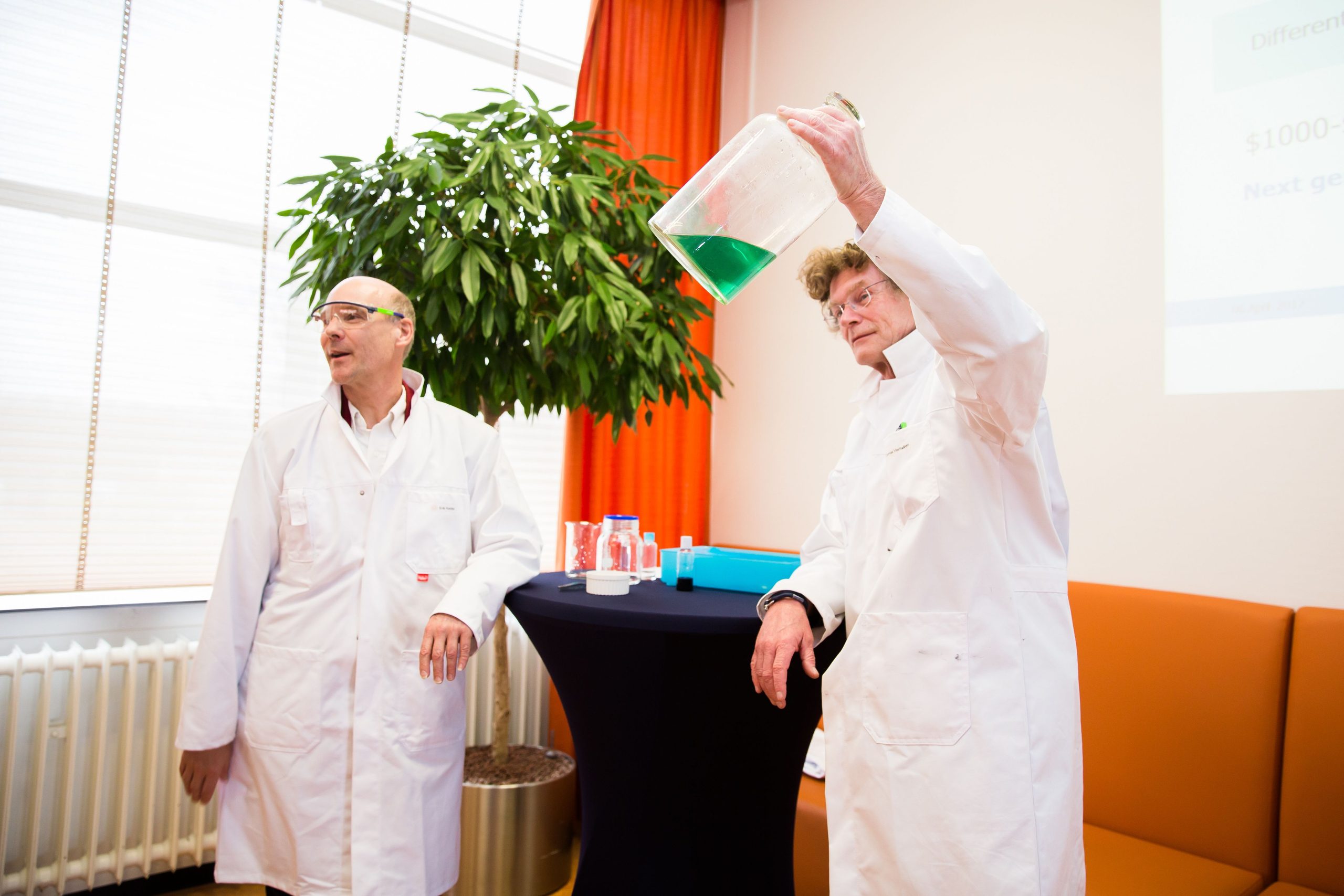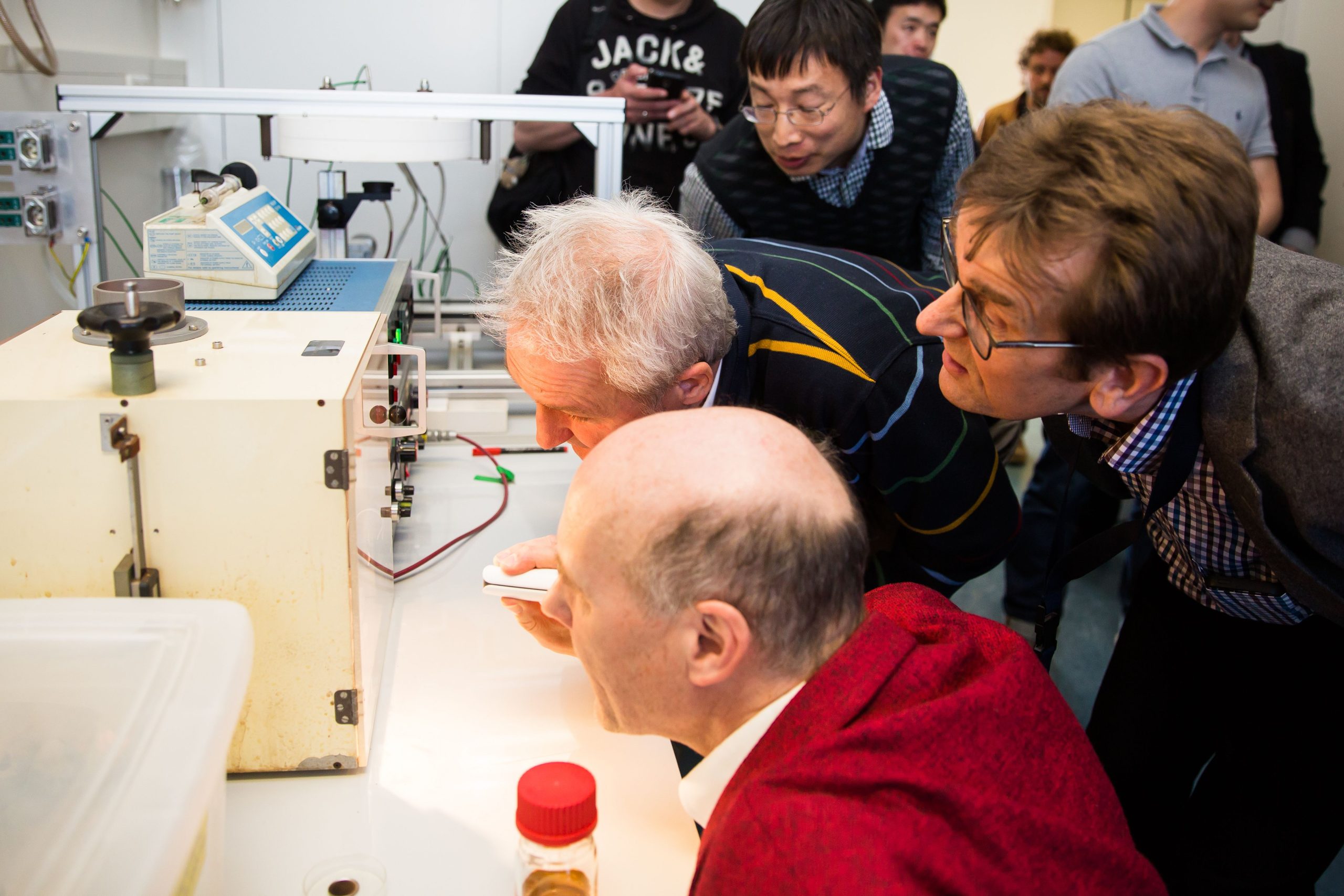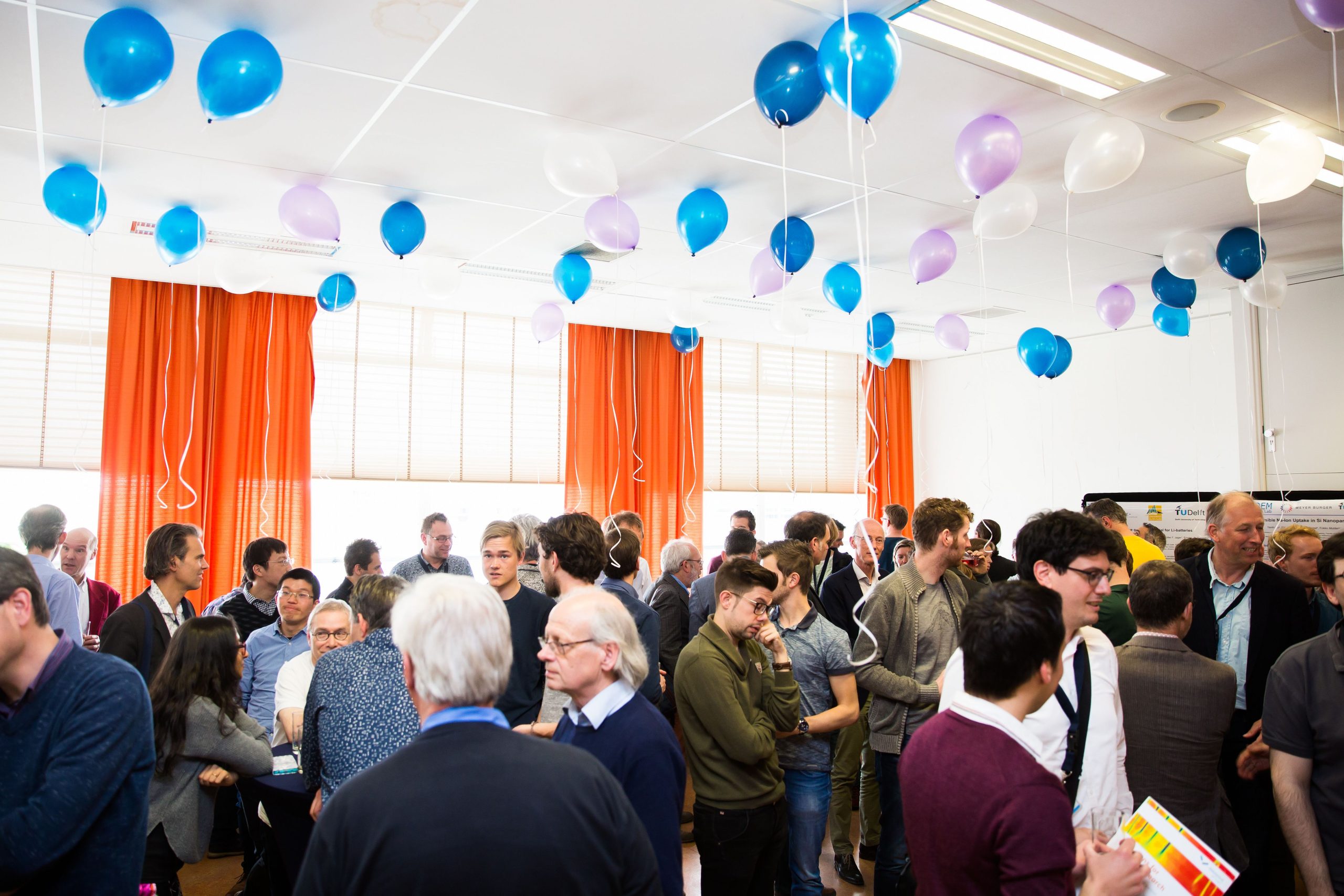Four years after its inception, the Battery Lab opened its doors last Thursday, April 6, 2017. Housed in the Reactor Institute Delft, the lab combines all stages of battery development.
The new Battery Laboratory became a necessity after the closing of the old chemistry building on the Julianalaan.
The new laboratories at the Reactor Institute (Faculty of Applied Sciences) have taken in all phases of battery building. New ceramic materials are made here, which can be coated on substrates. Gloveboxes, that keep out oxygen and moist, are the ideal environment for assembling new battery prototypes. The testing room can handle 150 individual batteries simultaneously, submitting each to its own charging and discharging regime.
Lab manager Frans Ooms is glad that all of the functions have now been brought together under one roof. It will improve standardisation, he believes, and thus the quality of research results.
 Opening
OpeningOpening
During his opening speech, researcher Dr. Marnix Wagemaker pointed out another happy coincidence of being housed at the Reactor Institute. The researchers are right next door to the neutron diffractometer PEARL, a very powerful instrument for (live) material structure studies.
Article in Delta: Versatile neutron scanner opened
Dr. Erik Kelder performed the opening act with the assistance of the institute’s director, Dr. Bert Wolterbeek. He just had to shake a large flask while the colour of the liquid within went over from blue via red to green.
After the ‘green light’, there were drinks for everyone and guided tours through the new labs.
 Tours
ToursTours
Link to press release in Dutch



Comments are closed.